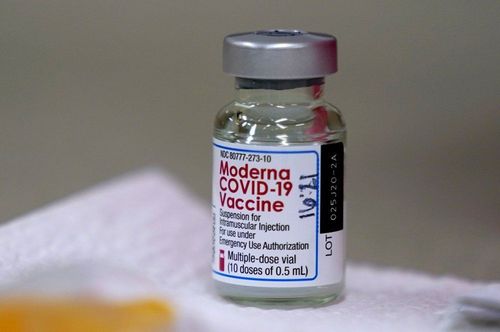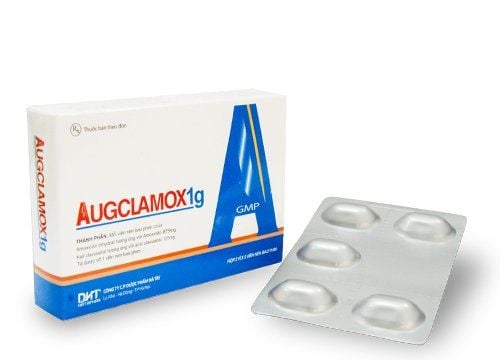This is an automatically translated article.
This article is professionally consulted by Master, Doctor Nguyen Nam Phong - Pediatrician - Pediatrics - Neonatology Department - Vinmec Phu Quoc International General Hospital.Coughing is a beneficial reflex for the body to expel viscous sputum, bacteria to the outside, helping the airways to open, protecting the respiratory tract when the trachea is irritated or inflamed.
However, if a persistent cough in children occurs for many days, it can be a warning symptom of many respiratory diseases. Prolonged coughing greatly affects the quality of life of children, making children restless, waking up at night, not eating well, stress, feeling anxious, sad, reduced learning...
1. Causes of prolonged cough in children
Many children have a cough lasting more than 1 month, have applied both folk methods and drugs but still not cured. This condition can be caused by the following:
1.1 Upper respiratory tract infections Upper respiratory tract infections are the most common cause of persistent cough in children. The disease appears due to viral infection, bacterial infection, infection from school, kindergarten. Children usually have a cough that lasts more than 6-7 days. In addition to persistent cough, the patient also has other symptoms such as fever, runny nose, sneezing, headache, fatigue,...
1.2 Bronchial asthma Bronchial asthma (asthma) in children is constriction and chronic inflammation of the lower respiratory tract, causing tracheobronchitis, restricting airflow to the lungs, causing recurrent stridor. Children under 3 years old often have a persistent cough when they have bronchial asthma. Pollen, fur, exhaust, smoke and certain foods,... can cause asthma in children. Children often have many episodes of dry cough, recurrent cough, chest tightness and wheezing. Usually children will have bronchiolitis more than 3 times before 2 years of age.

Hen phế quản là nguyên nhân thường gặp gây ho kéo dài ở trẻ
1.3 Postnasal drip When the child's body produces an excessive amount of mucus it can cause postnasal drip. The mucus will flow down the back of the throat, stimulating nerves and receptors, causing a persistent cough in children. This is a common symptom of allergies and viral infections. This type of cough has phlegm or no phlegm, usually worse at night. Your child will have an itchy neck, sneezing, itchy eyes, watery eyes, and possibly eczema if the cause is allergies.
1.4 Gastroesophageal reflux disease (GERD) is a common cause of chronic cough in both children and adults. This condition usually occurs when acid from the stomach leaks back into the food pipe. The illness can be worse when the child lies down at night. Children often have reflux after eating about 30-60 minutes, when changing positions or during meals because the lower esophageal sphincter opens on its own.
1.5 Whooping cough Pertussis is a bacterial disease that is spread through the respiratory tract. The disease can affect all ages, from infants, children to adults. Symptoms of the disease appear about 5 - 10 days after infection. The typical manifestation of the disease is that a child develops a cough from 15 to 20 days, a prolonged cough, accompanied by fever, vomiting, respiratory arrest, cyanosis after the cough, bradycardia,... In infants (1 - 12 months old), the disease is often severe because children under 3 months of age have not been vaccinated.
1.6 Pneumonia Pneumonia is a common infection in children. Symptoms include fever, chills, shivering, shortness of breath, and persistent cough. Diseases caused by viruses or bacteria. Children are susceptible to pneumonia when infected in amusement parks, schools,...
1.7 Foreign body in the airways When a foreign object is caught in the airway, the child will have symptoms of coughing, choking, choking, cyanosis, watery eyes, runny nose, sweating, ... In the case of a forgotten airway foreign body, the child will have a prolonged cough and recurrent pneumonia.
1.8 Some other causes ● Abuse of nasal decongestant sprays, causing the nasal mucosa to swell, become irritated, cause congestion, discharge behind the throat and cause prolonged cough in children.
● Dry or too humid air stimulates the growth of house mites, fungi,... causing a prolonged dry cough.
2. How to prevent and care for children with persistent cough
Coughing is a beneficial reflex because it helps open up the airways so the baby can breathe more easily. However, if coughing leads to bad consequences such as vomiting, sore throat, insomnia, inability to eat, throat bleeding, brain hemorrhage, inguinal hernia, abortion, convulsions, difficulty breathing, etc. .. should be treated immediately.
Chích ngừa cảm cúm cho trẻ để phòng ngừa cúm, giảm nguy cơ ho kéo dài ở trẻ em
2.1 How to prevent cough in children ● Get flu shots for children according to national immunization programs to prevent flu and respiratory infections.
● Give your baby enough nutrients, especially fruits rich in vitamin C such as oranges, tangerines, grapefruit, ... to improve the child's immune system.
● You should let your baby exercise outdoors, do not use the air conditioner at a temperature that is too different from the outside environment.
● When going out, children should wear masks to avoid dirt and sources of bacteria and viruses that cause disease.
● Teach children the habit of washing their hands often, especially before eating and after going to the toilet.
● Do not let your child come into contact with someone who is sick, even if it's just a common cold.

Cho trẻ dùng thuốc trị ho đúng theo chỉ định của bác sĩ
2.2 How to take care of a child with a persistent cough A persistent cough in children can be a warning symptom of many different diseases. Therefore, when a child shows signs of coughing for more than a week that does not go away, parents should take the child to the doctor. Through the examination, the doctor will make an accurate diagnosis of the child's health condition and recommend an appropriate treatment plan.
In case the child has a persistent cough, parents can follow these instructions:
● Give the child plenty of water to drink to soothe the throat, relieve cough, and thin the phlegm effectively.
● Daily hygiene of the nose and throat for children. Can be cleaned with salt water 2 to 3 times a day.
● Let your child use some safe herbs and folk remedies for cough such as sugar, honey, ginger, drink warm diluted tea,...
● Only use cough medicine when your child has a cough too much. or cause bad consequences such as chest pain, insomnia, vomiting, ...
If you need to use cough medicine for your child, parents need to take the child to a doctor and take the medicine according to the doctor's instructions. Some notes when using cough medicine:
● Only use cough medicine suitable for the age and nature of the child's cough.
● Do not arbitrarily give children cough medicines intended for adults to avoid side effects.
● When children cough with phlegm, they should not use cough suppressants (which often contain antihistamines or dextromethorphan) but should use expectorants to effectively treat coughs.
● Cough medicines containing (dexchlorpheniramine, chlorpheniramine, alimemazine,...) should only be used for children with prolonged dry cough and in accordance with age indications.
Parents need to monitor their baby's health, take them to the doctor's appointment for a quick and effective treatment of persistent cough in children, and avoid unpredictable complications.
To prevent diseases that babies often get, parents should pay attention to nutrition to improve children's resistance. At the same time, add supporting foods containing lysine, essential micro-minerals and vitamins such as zinc, chromium, selenium, B vitamins,... snacks and less digestive problems.
Parents can learn more:
Why do you need to supplement Lysine for your baby?
The role of zinc - Guidelines for reasonable zinc supplementation
Please visit the website Vinmec.com regularly and update useful information to take care of your baby and family.














